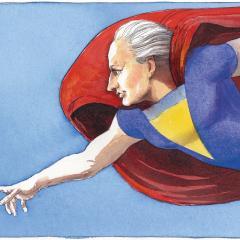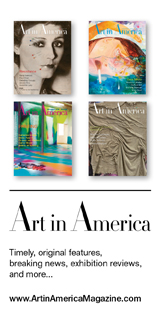Super Goethe by Ferdinand Mount (a review of "Goethe: Life as a Work of Art")
News from the Web
Herr Glaser of Stützerbach was proud of the life-sized oil portrait of himself that hung above his dining table. The corpulent merchant was even prouder to show it off to the young Duke of Saxe-Weimar and his new privy councilor, Johann Wolfgang Goethe. While Glaser was out of the room, the privy councilor took a knife, cut the face out of the canvas, and stuck his own head through the hole. With his powdered wig, his burning black eyes, his bulbous forehead, and his cheeks pitted with smallpox, Goethe must have been a terrifying spectacle. While he was cutting up his host’s portrait, the duke’s other hangers-on were taking Glaser’s precious barrels of wine and tobacco from his cellar and rolling them down the mountain outside. Goethe wrote in his diary: “Teased Glaser shamefully. Fantastic fun till 1 am. Slept well.”
Goethe’s company could be exhausting. One minute he would be reciting Scottish ballads, quoting long snatches from Voltaire, or declaiming a love poem he had just made up; the next, he would be smashing the crockery or climbing the Brocken mountain through the fog. Only in old age, and more so in the afterglow of posterity, did he take on the mantle of the dignified sage. Yet even late in life, he remained frightening. His daughter-in-law, Ottilie, whom he insisted on marrying to his son August, though they were not in love and got on badly, admitted that she was terrified of him.
He alarmed people as much as he charmed them, not only by his impatience, his sudden flare-ups, and his unpredictable antics, but by his foul language. In moments of exasperation he would denounce as a shithead any of the great men who had assembled at Weimar—Wieland, Herder, Schiller. The best-remembered line from his first play, Götz von Berlichingen, is the robber baron Götz shouting through the window to the emperor’s messenger: “Tell his Imperial Majesty that he can lick my arse”—otherwise known as the Swabian salute. Goethe’s Venetian Epigrams cheerfully skitter through masturbation, sodomy, and oral sex, with sideswipes at coffee shops and yo-yos (one of the first mentions of the toy). Here’s a sample couplet:
Hättest du Mädchen wie deine Kanäle, Venedig, und Fotzen
Wie die Gässchen in dir, wärst du die herrlichste Stadt.
(If only, Venice, you had girls as charming as your canals and cunts
As narrow as your alleys, you would be the world’s finest city.)
This Goethe had to be cleaned up quite a bit to become the national poet of the resurgent Germany of the later nineteenth century. Even the architects of that fearsome renaissance were not 100 percent sure of his iconic status. Bismarck said that he could do very well with no more than one-seventh of the forty-two volumes of Goethe’s collected works. The centenary of his birth in 1849 passed with relatively little notice. It was the British who led the way in revaluing Goethe as the genius for the new serious age. Thomas Carlyle advised: “Close thy Byron; open thy Goethe.” G.H. Lewes’s enthusiastic but not unduly reverent biography of 1855 predates anything comparable in German. George Eliot was even more enthusiastic than her husband, regarding Goethe as having raised the human mind to an eminence from which it could more clearly see the world as it really was.
Hardcover: 688 pages
Publisher: Liveright (9 Jun. 2017)
Language: English
purchase a copy of Goethe: Life as a Work of Art























